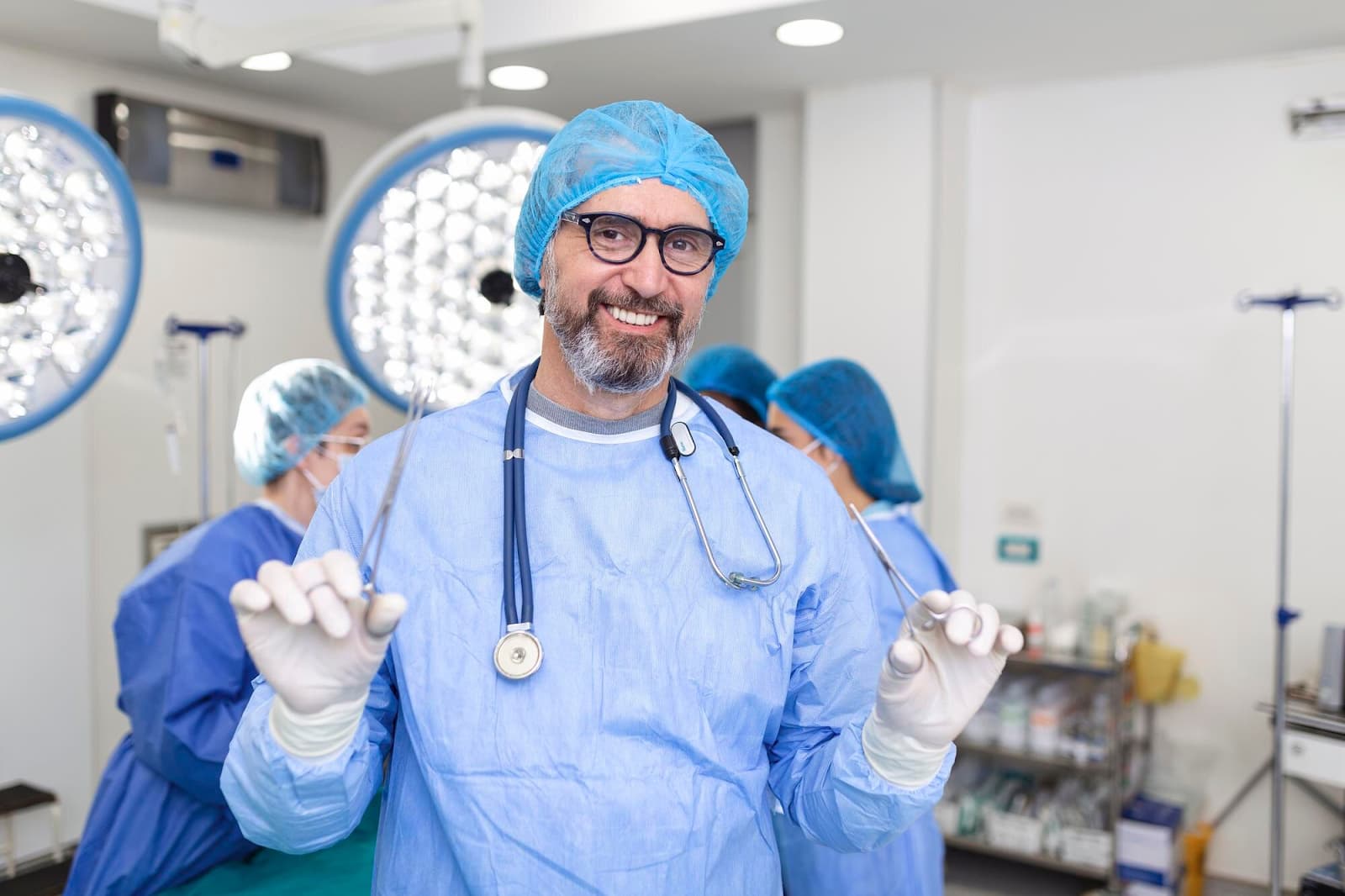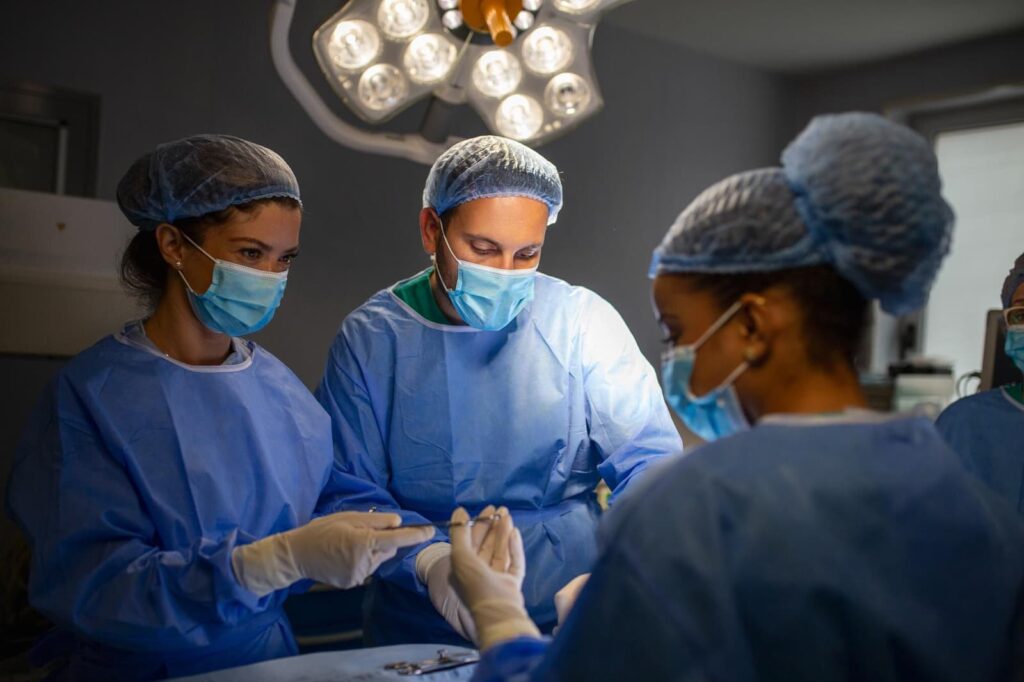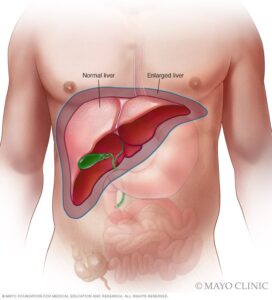
Comprehensive Guide to Liver Transplant in India
Liver transplantation is a life-changing major operation that gives hope to and saves patients who have serious conditions of the liver. For Indians, it is important to know how much a liver transplant costs and how successful it can be. To gain insights on this life-saving procedure, one needs to understand details about liver transplants, their cost implications as well as some of the best surgeons such as Dr Vivek Vij who work with AILBS India.
Liver Transplantation in India: Everything You Need to Know
How Can One Treat Liver Disease?
The liver disease treatment methods vary with the severity and underlying cause of the condition. If liver damage is severe to the point that it cannot function adequately, a liver transplant may be the only possible solution. This involves a complex surgical procedure of removing a diseased liver and replacing it with an organ from either deceased donor or living one. Its goal is to bring back normal functioning of the liver and improve patients’ lives.
The standard of care for individuals with end-stage liver diseases, acute hepatic failure or specific genetic disorders is usually liver transplant surgery. Before conducting a liver transplant, there are several steps that are taken like full body examination to determine if he/she will withstand this operation. Blood works, imaging studies and consultations between multidisciplinary health experts form part of this evaluation process.
Liver Disease Detection Tests
Early diagnosis of any abnormalities in liver tissues is vital as it promotes timely management strategies. A variety of diagnostic examinations are conducted so as to expose any afflictions related to human livers and help measure their magnitude. Routine assessments such as lipids profile, ALP and gamma-GT tests can assist in diagnosing certain non-specific conditions while radiological modalities such as US scan or MRI scan can delineate some important differential diagnosis. In order for practitioners to establish whether they have been dealing with hepatitis B infections all throughout their lives or not many doctors encourage them undergo serological assays like HBV DNA test which best detects total viral load also known as VLG that helps differentiate those patients who will progress into chronic hepatitis, cirrhosis or hepatocellular carcinoma from those having self-limiting infection.
| Factors Influencing Liver Transplant Cost in India |
|---|
| Type of transplant procedure (deceased donor, living donor) |
| Hospital charges and facilities |
| Surgeon fees and expertise |
| Post-operative care and rehabilitation |
| Medication and follow-up expenses |
Comparatively, the cost of liver transplant surgery in India is significantly lower than in many Western countries, making it a preferred destination for medical tourists seeking high-quality healthcare at affordable prices.

Comparison of Liver Transplant Cost in Different Countries
Types of Liver Transplants
Orthotopic Transplant
An orthotopic transplant is the most common type of orthotopic transplant procedure performed worldwide. During an orthotopic transplant, the diseased liver is removed, and a healthy liver from a deceased or living donor is implanted in its place. This procedure requires meticulous surgical skill and expertise to ensure successful outcomes for the recipient.
Orthotopic transplants have a high success rate and offer long-term benefits for patients with end-stage liver disease. Advances in surgical techniques and post-operative care have improved the overall survival rates and quality of life for individuals undergoing orthotopic transplants.
Split Type of Orthotopic Transplant
In some cases, a single donated liver can be split and transplanted into two recipients, a procedure known as a split liver transplant. This innovative approach helps maximize the use of limited donor organs and increase the number of patients who can benefit from life-saving liver transplants.
Split liver transplants require careful planning and coordination among surgical teams to ensure both recipients receive adequate liver tissue and function post-transplant. While technically challenging, split liver transplants have proven to be a valuable strategy for addressing organ shortages and expanding access to liver transplantation.
Orthotopic Donor Transplant
Living donor liver transplants involve removing a portion of a healthy person’s liver and transplanting it into a recipient with liver failure. This type of transplant offers several advantages, including shorter waiting times, better outcomes, and reduced risks of organ rejection. Living donor liver transplants require a compatible donor willing to undergo surgery and donate a portion of their liver to save the life of a loved one or stranger in need.
Living donor liver transplants have become increasingly common due to the growing demand for donor organs and the potential for faster recovery and improved outcomes compared to deceased donor transplants. The safety and well-being of both the donor and recipient are paramount during the evaluation, surgery, and post-operative care phases of living donor liver transplants.
Who Requires a Liver Transplant
Individuals in need of a liver transplant typically have advanced liver disease or failure, such as:
- Cirrhosis;
- Hepatitis B or C;
- Alcoholic liver disease;
- Nonalcoholic fatty liver disease (NAFLD);
- Primary biliary cirrhosis;
- Certain genetic liver disorders.
Patients being considered for liver transplants undergo a comprehensive assessment to determine their suitability based on factors like the severity of their liver condition, overall health, and the likelihood of a successful transplant. This procedure is crucial for those whose liver function has significantly declined and cannot be managed through other medical treatments.
Who Should Avoid Liver Transplantation
Certain individuals may not be suitable candidates for liver transplants due to various reasons, including:
- Advanced age and severe existing medical conditions that increase surgical and post-transplant risks;
- Ongoing substance abuse or alcoholism, which can impact transplant success;
- Advanced cancers or severe infections that are difficult to treat or control;
- Significant cardiovascular or pulmonary diseases that raise the risk of surgical complications;
- Noncompliance with medical treatments or inability to follow post-transplant medication and lifestyle requirements.

Reasons to Consider India for Liver Transplant
India is a preferred destination for liver transplants for several reasons, including:
- Highly skilled healthcare professionals experienced in liver transplantation;
- Advanced medical facilities equipped with cutting-edge technology;
- Cost-effective treatment options compared to many other countries, making it affordable for international patients;
- Access to a large pool of organ donors, including living-related donors;
- Shorter waiting times for transplants due to higher organ availability;
- Well-established post-transplant care and follow-up services;
- India’s reputation for providing quality healthcare and a growing number of successful liver transplant cases;
- The opportunity to combine medical treatment with tourism, exploring India’s rich culture and heritage during recovery.
Conclusion
In conclusion, liver transplantation in India offers a ray of hope for individuals battling end-stage liver disease and other severe liver conditions. With experienced surgeons like Dr. Vivek Vij leading the way in innovative transplant techniques and compassionate patient care, the landscape of liver transplantation in India continues to evolve and improve. By understanding the treatment options, costs, and types of liver transplants available, patients can make informed decisions about their healthcare journey and embark on a path towards renewed health and vitality. The affordability, expertise, and success rates of liver transplant procedures in India underscore the country’s position as a leading destination for world-class medical care and transformative surgical interventions.

